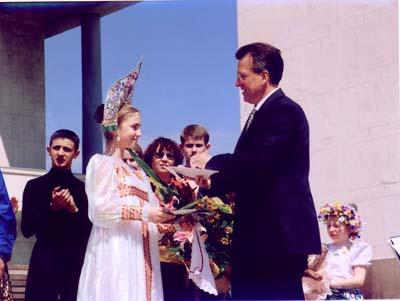Models, types and principles of local self-government
Local government, as practice and theoryrealization of the principle of the sovereignty of the people, is to redistribute the power and management powers of the authorities in the conditions of its territorial decentralization.
The basic principles of local self-government presuppose a certain degree of autonomy of local government and administration or the creation of self-governing territorial entities.
Conceptual provisions of local self-government at the theoretical level were developed at the beginning of the XIX century by A. Tocqueville, and then supplemented in the works of German lawyers R. Gneist and P. Laband.
Concept and principles of local self-government inthe framework of social theory is based on the adoption of the fundamental principle of the people's freedom to exercise their powers through the creation of local public organizations, communities and bodies on the ground. Within the framework of the state interpretation, the principles of local self-government are one of the possible options for transferring the functions of the state to the regions (regions).
Local government in this case assumespermitting the state to exercise power in the established limits and solve certain problems of vital activity in this particular territory, for example, which national holidays, how, what, local crafts and crafts, how to organize the education system, etc.
In the world, a large enoughnumber of models and types of local self-government. The main difference between them is the degree of distributed powers to exercise power in the region. As a system, the Anglo-Saxon model is distinguished, continental-European, and mixed. Individual researchers, as an independent, called the Russian model of self-government. All these models, and the typical principles of local self-government, were theoretically substantiated in the corresponding doctrines: the doctrine of a free community, socio-economic and state concepts, the dualistic theory of municipal government.
As complementary, there are concepts of social services and various social reformist models of the municipal system.
Modern principles of local self-government include the following provisions:
- autonomy and organization of separate management institutions;
- Obligation of interaction of local authorities with institutions of central authority;
- Legislative registration of the division of powers and responsibilities between the authorities of the center and regions;
- compatibility of interests of the state and regions;
- the assumption of a variety of forms of organizational design of local self-government and methods of its activity;
- ensuring that the material resources of local institutions are consistent with their authority;
- ensuring human rights;
- ensuring the principle of legality in the functioning of local government and administration.
To make local government legitimateforces, its principles, as a rule, are reflected in the constitutions, in which the legal foundations of this phenomenon of the state-political organization of public life are fixed.
The most important condition for effective existencevarious designs of regional self-government, are its material and economic bases. In this case, they represent the totality of property, budgets, economic and financial rights that local authorities have.
Thus, organized on the principlesdemocracy, this form of organization of society's life quite effectively helps the formation of a harmonious combination of interests of national and regional scales.
</ p>







